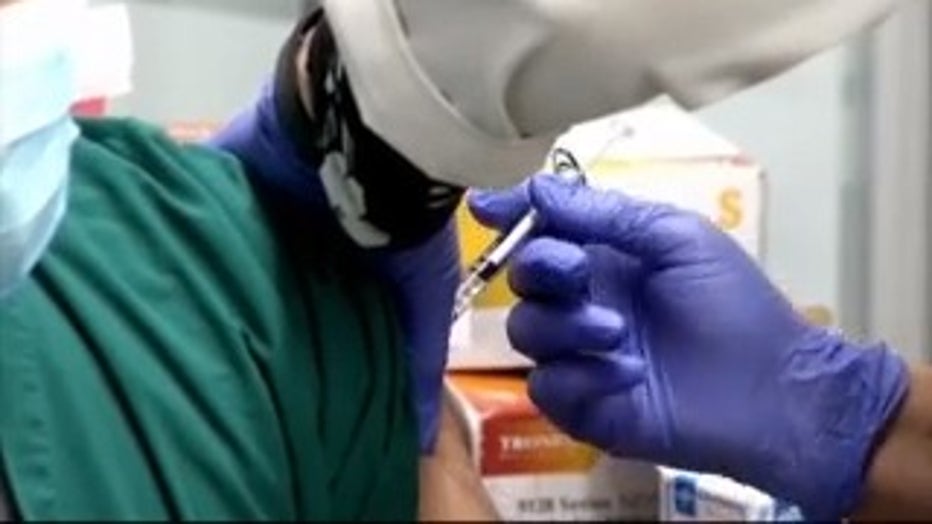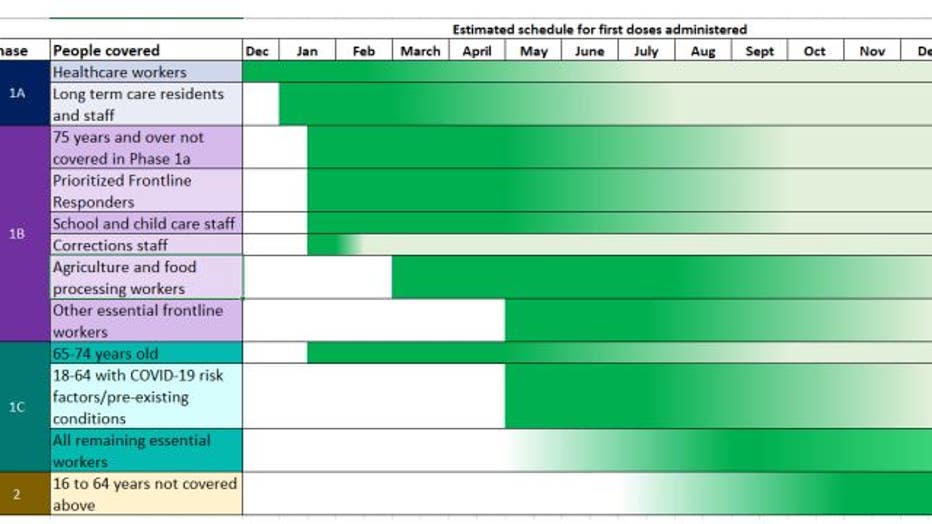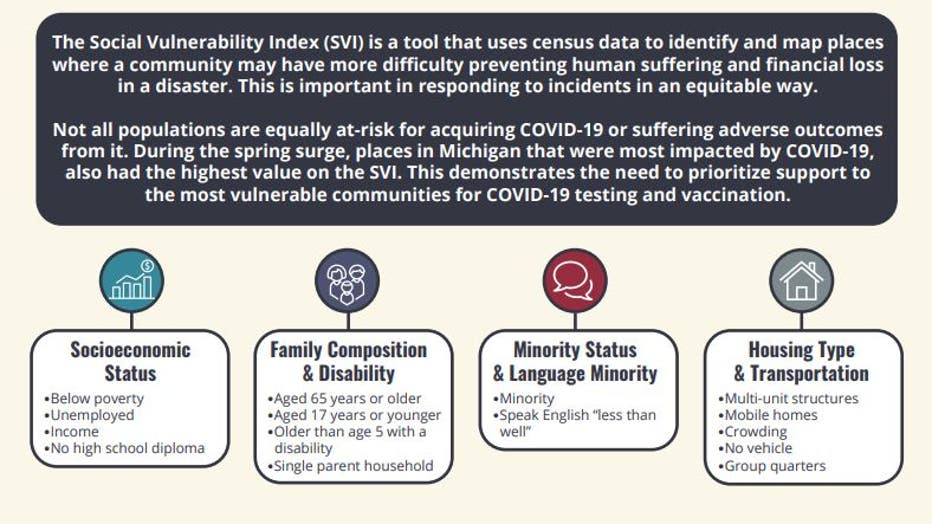Michigan offering vaccine providers up to 2,500 doses to administer to vulnerable populations
LANSING, Mich. - Michigan is rolling out a new statewide vaccine program that will provide thousands of doses in exchange for providers helping elderly people who may struggle to get access to treatment.

Michigan wants 70% of its population over the age of 16 vaccinated by the end of 2021
The health department's new pilot program aims to get vaccines to people who may not be capable of acquiring one on their own due to lack of transportation or a language barrier.
Any provider that's federally authorized to administer a vaccine is eligible and has until March 1 to apply.
"We are working hard to eliminate any barriers to vaccine access," said Chief Medical Executive Dr. Joneigh Khaldun. "Your ability to get a vaccine should not be impacted by whether you are in a rural or urban part of the state, are lower-income, or don’t have access to a car, a computer, the Internet, or don’t speak English. This is what equity means."
Achieving 70% immunity in 2021
Shortly after getting its hands on the first batch of coronavirus vaccines in December, MDHHS rolled out its plan of vaccinating 70% of the population age 16 and older by the end of next January.
That's about 5.6 million people and would be enough for the state to begin considering herd immunity parameters for businesses and events. While many barriers like vaccine hesitancy and navigating a complex health care provider system can stall some inoculations, the biggest factor keeping the state from providing more vaccines is supply.
The next two months will reveal just how many more vaccines are coming for Michigan after both President Joe Biden and Dr. Anthony Fauci said ample supply will be ready by then.
RELATED: Fauci predicts 'open season' by April for everyone to start getting COVID-19 vaccines
Of the 2.4 million doses that have been administered, about 460,000 have gone into nursing homes and long-term care providers, while hospitals and local health departments have administered close to 2 million.
Health care workers, nursing home staff, patients over the age of 65, and workers filling essential roles have made up the vast majority of those vaccinations.
According to the state, people eligible for a vaccine in the third phase of the state's rollout won't begin until the end of April. People age 16 to 64 without comorbidities won't have an available vaccine until at least July.

By the health department's estimation, the whole state won't be eligible for vaccines until mid-summer (MDHHS)
What is the Social Vulnerability Index
Residents might have heard of the SVI or Social Vulnerability Index in recent weeks. If not, it's about to become much more common as the state adopts it as the primary tool for deciding who gets a vaccine.
At its core, the SVI is informed by the data provided by the U.S. Census that helps identify communities that are underserved or may have a harder time overcoming public health problems and mitigating financial issues.
Factoring in socioeconomic status, the average age of residents and composition of families, the status of minorities, and the housing type and available transportation - all of these can help paint a picture of just how vulnerable a city or neighborhood is. While none of these facets may directly impact public health and financial stability, they serve as useful indicators for the wellbeing of a community.
Initially, the state prioritized health care workers regardless of the community's SVI since they were the state's priority, which led to an uneven distribution of vaccines around the state. With much of Michigan's health care industry vaccinated, MDHHS is now shifting to the SVI to allocate vaccines to the most appropriate parts of the state.
Besides helping others get the vaccine, following the SVI will also identify those most vulnerable to sickness and death from the coronavirus.

The Social Vulnerability Index is the state's primary tool for identifying communities that should be allocated vaccines to (MDHHS)
Using local communities to overcome barriers
To bolster the state's goal of vaccine equity, MDHHS is offering up to 2,500 doses to health care providers that work to remove barriers for its most burdened patients.
Providers who are encouraged to apply will already be federally approved to administer the COVID-19 vaccines and have the appropriate storage capacity to hold them. They must also identify methods for administering the second dose and enter the information into the Michigan Care Improvement Registry within a day of giving the shot.
The applicants will also be asked to come up with methods to overcome barriers like transportation, langauge, disabilities, and hesitancy that are keeping many from getting the vaccine.
The application must be submitted by 5 p.m. on March 1.
RELATED: US life expectancy drops a full year in COVID-19 pandemic, most since WWII
"With this community outreach pilot project, we want to increase the vaccination rate of individuals who are most at risk of negative COVID-19 outcomes and to identify innovative practices for effective vaccination strategies for vulnerable communities," Khaldun said. "We will consider continuing the program based on the availability of the vaccine and the success of the pilot in achieving our goals to remove barriers."
Questions about the application should be submitted to MDHHS-VaccineOutreach@michigan.gov
Read more about the community outreach program here.

